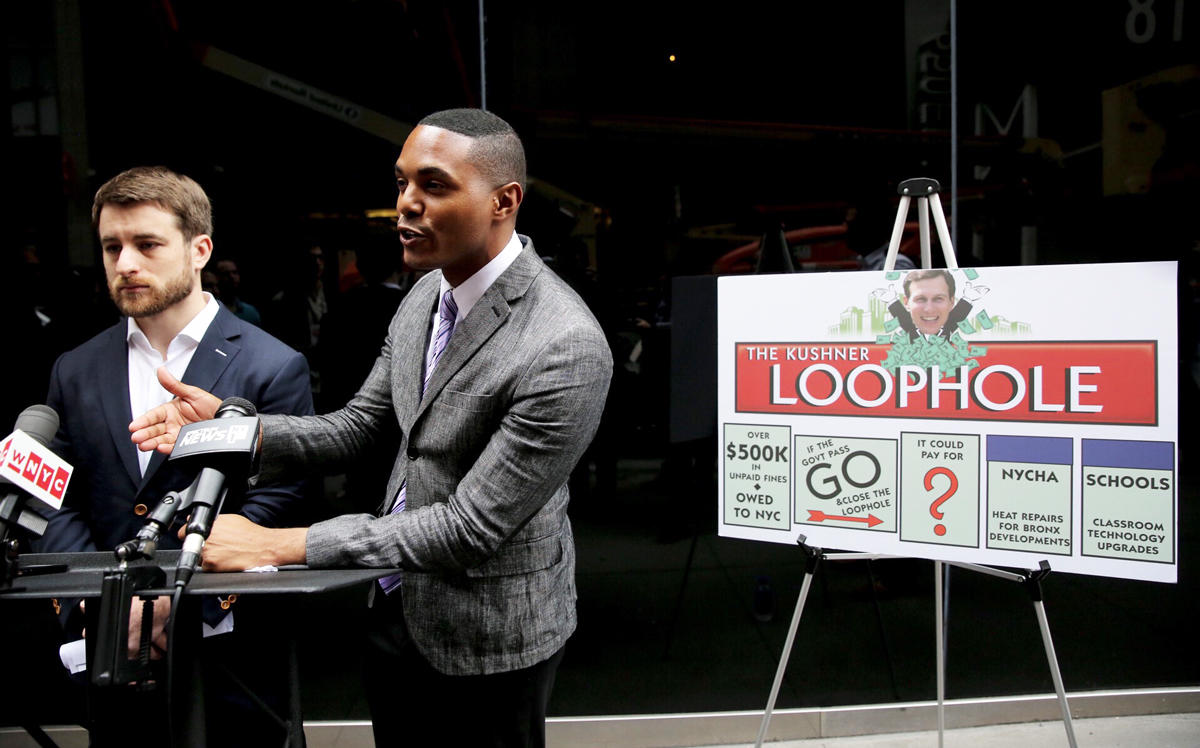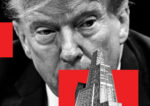Trending
“At best it’s sloppiness”: Torres proposes bill to crackdown on landlords who don’t disclose rent-stabilized tenants on permits
A recent analysis by TRD found that those misrepresentations were made in 45% of A2 permits this year

A new bill seeks to crack down on landlords who falsely claim that their properties have no rent-regulated units, an offense that goes far beyond the Kushner Companies.
Standing in front of the 52nd Street entrance to Kushner’s 666 Fifth Avenue, Council member Ritchie Torres on Monday floated legislation that will target developers who improperly fill out Section 26 of permit applications by marking that there are “no” rent-stabilized apartments onsite when they should mark off “yes.”
“At best it’s sloppiness, at worst it’s a sinister scheme to displace residents,” Torres said.
The legislation would require the Department of Buildings to audit a developer’s entire portfolio if one permit is found to be filed incorrectly or if more than five amended building permits are submitted. If violations are found, it would also require the DOB to notify the City Council, city Department of Investigation, state Department of Housing and Community Renewal, county District Attorney and the state Attorney General.
Additionally, the legislation would mandate that the DOB and DHCR share information about occupied rent-regulated buildings. This line of communication already seems to be active, though it wasn’t until 2016 that the DOB gained direct access to DHCR’s database of rent-regulated buildings.
Torres said the legislation would help curb the “weaponization of construction” and help “close the Kushner loophole.”
In August, the DOB fined Kushner $210,000 for failing to identify in 42 different instances that rent-regulated tenants lived at its properties. During the press conference, Torres was standing next to a poster made to look like a Monopoly game board, with Jared Kushner’s face superimposed on Uncle Moneybags, popping out of a pile of money.
According to the DOB, Section 26 doesn’t trigger extra oversight, but it does potentially provide officials with information during investigations into tenant harassment. Torres called the improperly filed permits a “systematic problem in the real estate industry.”
He said the legislation would help bring to an end the “culture of impunity that lies in the underbelly of the real estate industry.”
In analysis published by The Real Deal on Friday found that in 2018 alone about 45 percent of A2s, a subset of alteration permit applications, indicated that there were “no” rent-stabilized apartments onsite when those properties’ respective tax records show otherwise.
According to a report released on Monday by the Housing Rights Initiative and the DOI, the city approved more than 10,000 false permit applications in the past two and a half years.
A spokesperson for the DOB said that the agency has not yet reviewed the proposed bill nor HRI’s report. The spokesperson noted, however, that in a majority of the cases identified by HRI, the landlords submitted tenant protection plans.
“While we haven’t had the opportunity to determine if this report is accurate, at most the group’s findings amount to 3 percent of construction permits issued during that time,” a DOB spokesperson said in a statement. “More importantly, checking the wrong box on a permit application does not mean that any improper work happened. DOB thoroughly reviews and audits permit applications to protect residents, whether or not the landlord checks the rent-regulation box on our forms.”
So far this year, the department has issued 550 violations on Section 26 totaling $1.84 million in fines.
Torres criticized the DOB’s “nonchalant” attitude about the violations. He compared the falsification of the construction permits to when New York City Housing Authority’s Chair Shola Olatoye signed off on paperwork falsely certifying that lead inspections had been completed at thousands of possibly contaminated homes. He also noted that city has $1.5 billion worth in outstanding Environmental Control Board violations — meaning that there’s potentially little incentive for developers to follow the rules since the city ultimately doesn’t collect the fines it imposes.
Torres said the bill will likely be introduced during at one of the next two City Council meetings.




